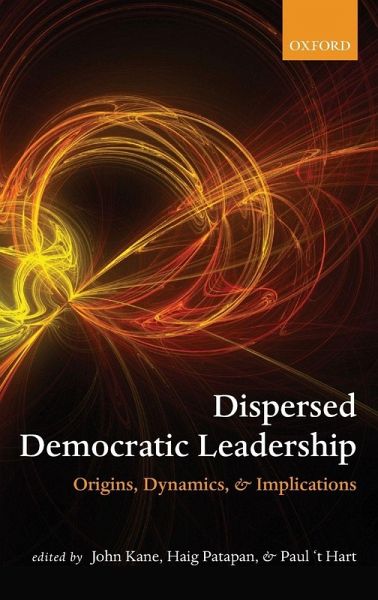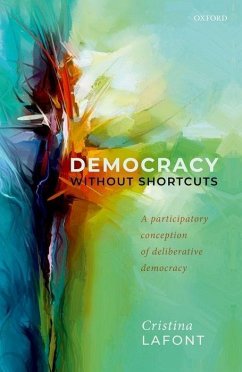
Kane Et Al
Gebundenes Buch
DISPERSED LEADERSHIP IN DEMOCRACY C
Versandkostenfrei!
Versandfertig in 1-2 Wochen

PAYBACK Punkte
26 °P sammeln!




This collection of essays seeks to explore the unique way democracy disperses leadership, and the significant opportunities and challenges it presents to democratic leaders.
John Kane is Professor in the Department of Politics and Public Policy and Deputy Director of the Centre for Governance and Public Policy at Griffith University, Australia. His research interests include political theory, political leadership, foreign policy and public management. He is the author of numerous articles in books and international journals, co-editor of Rethinking Australian Citizenship (Cambridge UP) and Dissident Democrats: The Challenge of Democratic Leadership in Asia (Palgrave Macmillan), and author of The Politics of Moral Capital (Cambridge UP) and Between Virtue and Power: The Persistent Moral Dilemma of US Foreign Policy (Yale UP). Haig Patapan is Professor in the Department of Politics and Public Policy, Griffith University, Australia. His research interests include political theory, political leadership and democratic governance. He is the author of Judging Democracy (Cambridge UP; 2000) and Machiavelli in Love: the Modern Politics of Love and Fear (Lexington; 2006); and coeditor of Globalization and Equality (Routledge; 2004); Westminster Legacies: Democracy and Responsible Government in Asia and the Pacific (UNSW Press; 2005); and most recently, Dissident Democrats: the Challenge of Democratic Leadership in Asia (Palgrave; 2008). Paul 't Hart is professor of political science at Australian National University and professor of public administration at Utrecht University. His research interests include public leadership, political psychology, crisis management, and policy analysis. He has (co)authored or (co)edited 25 books, including Groupthink in Government (Johns Hopkins UP 1994), Beyond Groupthink (Michigan UP 1997), Success and Failure in Public Governance (Elgar 2001), The Politics of Crisis Management (Cambridge Up 2005) and Governing After Crisis (Cambridge UP 2005).
Produktdetails
- Verlag: Oxford University Press
- Seitenzahl: 344
- Erscheinungstermin: 6. August 2009
- Englisch
- Abmessung: 240mm x 161mm x 23mm
- Gewicht: 682g
- ISBN-13: 9780199562992
- ISBN-10: 0199562997
- Artikelnr.: 26865479
Herstellerkennzeichnung
Libri GmbH
Europaallee 1
36244 Bad Hersfeld
gpsr@libri.de
Für dieses Produkt wurde noch keine Bewertung abgegeben. Wir würden uns sehr freuen, wenn du die erste Bewertung schreibst!
Eine Bewertung schreiben
Eine Bewertung schreiben
Andere Kunden interessierten sich für













